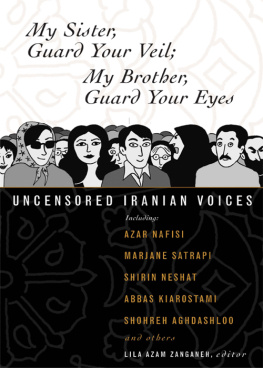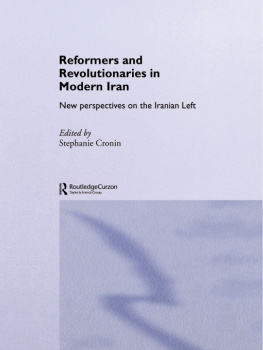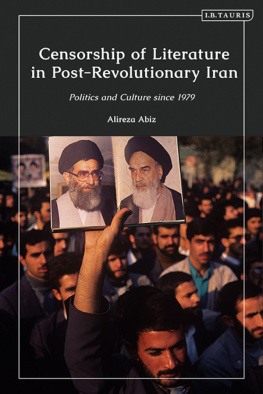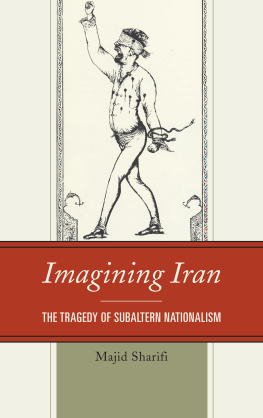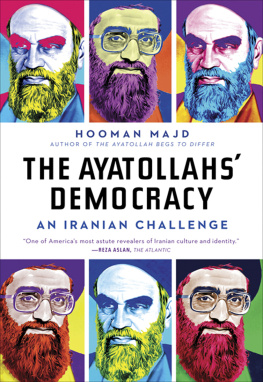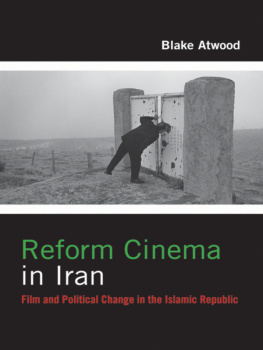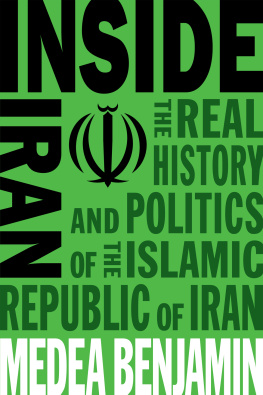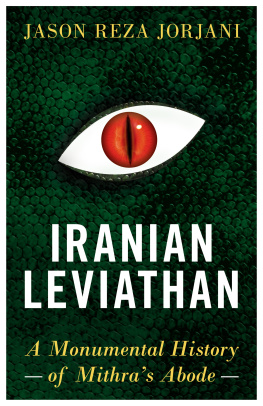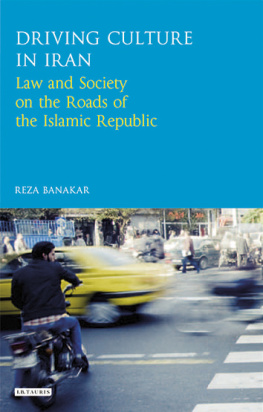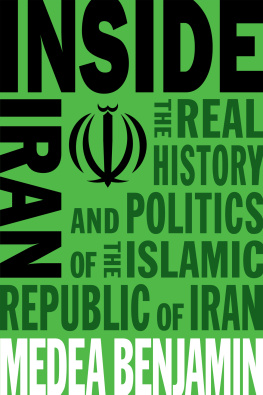
BEACON PRESS
25 Beacon Street
Boston, Massachusetts 02108-2892
www.beacon.org
Beacon Press books
are published under the auspices of
the Unitarian Universalist Association of Congregations.
2006 by Lila Azam Zanganeh
All rights reserved
Printed in the United States of America
09 08 07 06 8 7 6 5 4 3 2 1
This book is printed on acid-free paper that meets the uncoated paper
ANSI/NISO specifications for permanence as revised in 1992.
Composition by Wilsted & Taylor Publishing Services
Library of Congress Cataloging-in-Publication Data
My sister, guard your veil; my brother, guard your eyes :
uncensored Iranian voices / Lila Azam Zanganeh, editor.
p. cm.
eISBN: 978-0-8070-0464-7
ISBN 0-8070-0463-4 (pbk. : alk. paper)
1. IranIntellectual life. 2. IranSocial conditions.
3. WomenIranSocial conditions20th century.
4. WomenIranSocial conditions21st century.
I. Azam Zanganeh, Lila.
DS266.M92 2006
305.4095509045dc22 2005027496
To my parents,
who taught me to speak up
This generation had no past. Their memory
was of a half-articulated desire, something they
had never had. It was this lack, their sense of
longing for the ordinary, taken-for-granted
aspects of life that gave their words a certain
luminous quality akin to poetry.
Azar Nafisi, Reading Lolita in Tehran
INTRODUCTION
Whether as a haven of exotic sensuality or a stronghold of fanatic religiosity, Iran has, since ancient times, inflamed the popular imagination. Memories of the millennial dynasties of the shahs echo in the minds of onlookers with the convulsive days of the revolution. In the past months alone, Iran has appeared in the news almost daily: nuclear threats, conservative onslaughts, Islamic clampdowns, mock trials, and political assassinations. Yet there seems to be so little that Americans actually know about Iran, and decade after decade, the misunderstandings live on.
Recently, I was forwarded an e-mail written by a prominent member of the Jewish community in New York. It spoke of me and read: Lets have Leila on a panel, as a representative of the Arab press. A gracious invitation sent, no doubt, with the best intentions. Alas, it so happens that I am neither Leila nor Arab. But like an overwhelming majority of Americans, this gentlemanwho knows I am Iranianbelieves that Iran is part of the Arab world by virtue of the fact that it is a Muslim country under the yoke of a staunch Islamist regime. Irans story, past and present, is at once more intricate and more arcane, something rich and strange.
Perhaps to a greater extent today than ever before, Iran is a political puzzle. Together with Israel and Turkey, it is one of only three non-Arab countries in the Middle East. Historically, the Persian Empire became the first state to grant protection to the Jews 2,500 years agocenturies before Arab invasions brought Islam to the Iranian plateaus. Yet Iran is now the worlds single theocracy, the only Islamic Republic of the Middle East (excluding Pakistan from the region proper), a virulently anti-Semitic state andsome sayone of the regions most volatile powder kegs. The intransigent rule of the mullahs coupled with a nascent nuclear capacity seem to constitute a threat not only to Irans neighbors but to international stability at large.
The countrys ruling elite, however, strives to embrace the appearance of a democratic process, notably through the organization of elections in which both men and women are allowed to take part. But any parliamentary motion or presidential decree may be unilaterally vetoed by either the Council of Guardians or the supreme religious leader (both of them unelected), thus turning the system into a sham of democracy. Not to mention the illiberal, inchoate, and severely dysfunctional legal and judicial infrastructures in place. So Iran teems with make-believe democratic institutions and continues to bewilder Western countries.
At the heart of the profound distrust between Iran and the West are several ideological and historical factors. First, there is the Islamic Republics alleged, and somewhat theatrical, unwillingness to negotiate a lasting dialogue with America and Western Europe. Notoriously, the Iranian government thrives on berating the archdemon America and its egregiously corrupt Western value system. An Iranian reformist loves to tell a familiar storyin his country, when the conservatives wish to accuse and demean him, they brand him as Western-struck, which is only one step beneath the ultimate insult: Western spy. In this fashion, the very concept of Western is cursorily used as an ideological scarecrow against which lay Iranians may measure the Platonic ideals of the Islamic Republic.
But the story, of course, is not that simple. America has done its fair share to infuriate Iran over the years. For one thing, there is that illustrious axis of evil petition of faith. Only half a century ago, Americans resolutely supported the regime of Shah Mohammad Reza Pahlavi, a fact that the Islamic Republic will likely never forget. After the demise of the shah, the United States backed Saddam Hussein during the grisly Iran-Iraq war, financed groups of Sunni fundamentalists in the Afghan war against the Soviet Union, and covertly negotiated with the TalibanIrans sworn enemyprior to September 11.
Thus Irans tainted perception of the United States appears to oddly mirror Americas perception of Iran. And the recent political developments in both countriesthe neocon frenzy on one side and the presidential vow to return to the rigid principles of the 1979 Islamic revolution on the otherthough incomparable in nature, have only complicated the geopolitical and emotional maps.
To be sure, in the wake of the landslide victory of the Iranian hard-line presidential candidate in 2005, Westerners who believed in the reformist pledges of Mohammad Khatami and the promise of an enlightened Iran are now faced with a looming nimbus of uncertainty. And too often, their knee-jerk reaction is to consider Iran in Manichean terms. There are those who have blind faith in the countrys democratic future and those who dread the noxious seeds of the Islamic Republic. There are those who believe, at times too hastily, that Iran is at core a Western-loving nation that can hardly wait for America to save it from its own bloodthirsty leaders. And there are those who are convinced that Iran, by and large, is a nation of Allah-worshipping, gun-toting terrorists.
In truth, Iranians themselves live in a far more complex and schizophrenic reality, at a surreal crossroads between political Islam and satellite television, massive national oil revenues and searing social inequalities. And if Iran is geopolitically menacing and religiously sclerotic, it is also astonishingly youngmore than 50 percent of the country is under the age of twenty-fiveand ravenously eager to embrace modernity along with a certain avatar of the American dream. Today, at heart, these young Iranians have forged their own dream, and they are often proud of their culture. Some are genuinely religious and believe in a modern, progressive, and tolerant Islam. Manywhile mesmerized by their satellite TVs and American sitcomsremain skeptical about American values. They are inhabited, at times haunted, by a tantalizing duality: naturally drawn by the appeal of all things Western, they harbor a militant sense of local culture and national pride.

